The Discipline Dilemma: Guiding Principles for Finding an Approach that Works for Your Individual Child and Family
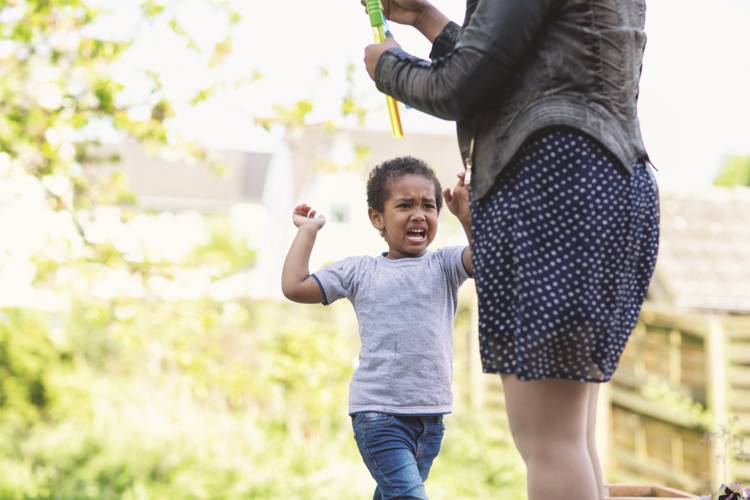
What Parents Want
Parents are struggling to find effective ways to discipline their children.
Our national parent survey conducted in partnership with the Bezos Family Foundation, found that over half (56%) say that managing their child when he/she misbehaves is one of their top challenges. Nearly 6 in 10 parents (57%) say they struggle with figuring out the most effective way to discipline. Further, 60% wish they had more patience and 47% wish they could do a better job of managing their own emotions.
And parents are trying really hard to get it “right”. They use a range of discipline strategies but find most ineffective. Of the 86% of parents who use redirection or distraction, only 29% say it’s effective. Of the 81% who take toys away as a punishment, only 28% find it useful.
Parents find harsher discipline strategies even less effective. More than a quarter of all parents (26%) say they “pop or swat” their children a few times a week or more, but a full 80% of these parents say it is not an effective strategy. Sixteen percent say they intentionally embarrass their child regularly, but 85% of these parents don’t find it useful.
Our research with parents showed that parents don’t want to use harsh strategies but at the same time, they are tired of and overwhelmed by the “parenting industrial complex” telling them what to do. They don’t want one-size-fits all approaches and they mistrust “experts” who offer guidance without even knowing their child.
So what kind of guidance can we offer that is helpful, and not patronizing or prescriptive, that is not a one-size-fits-all, formulaic, approach that often leaves parents feeling incompetent because it doesn’t work?
We offer “frames”—a lens through which they can decode the meaning of their child’s behavior and develop an approach to discipline that works best for their individual child and family.
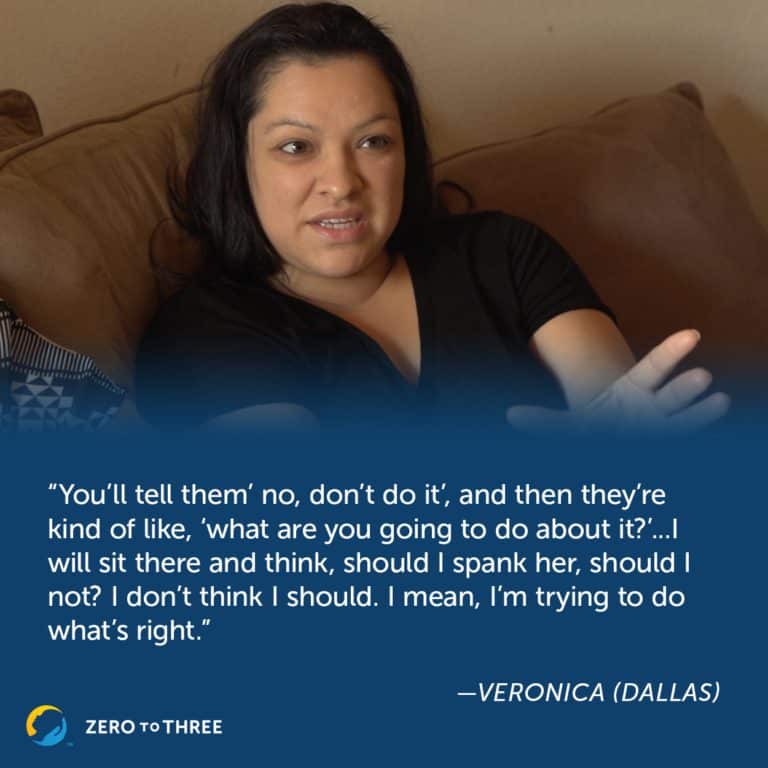
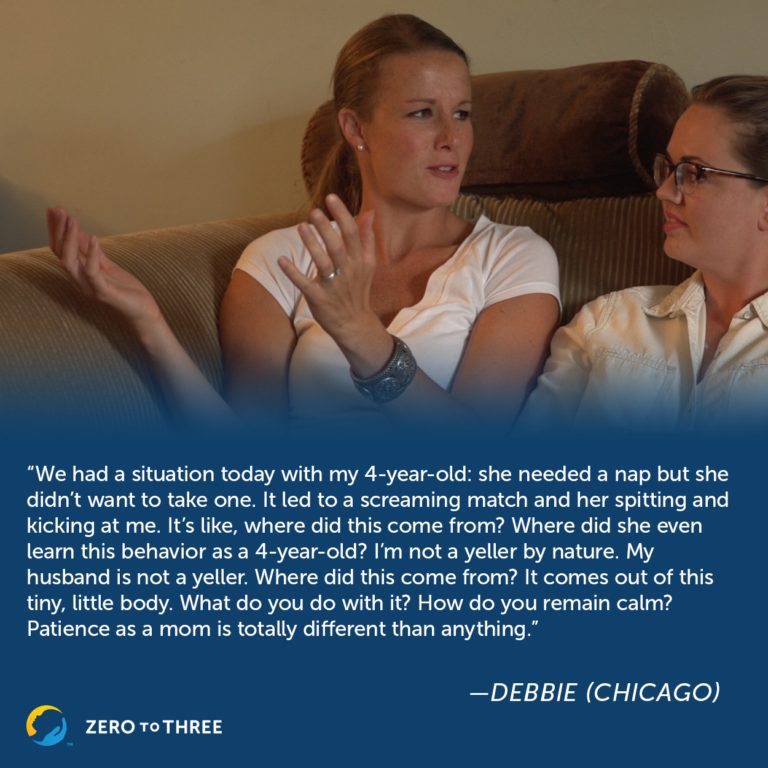
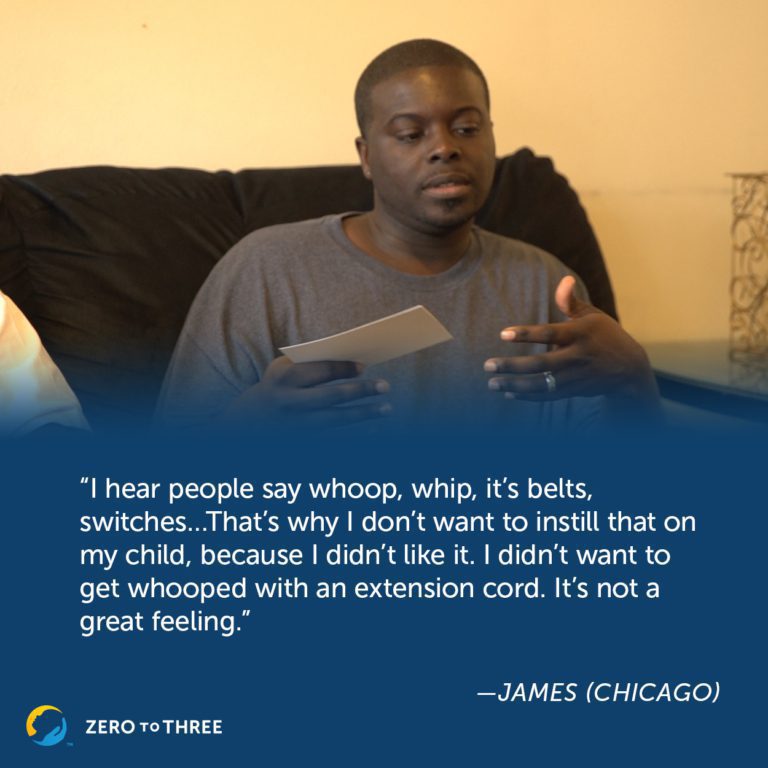

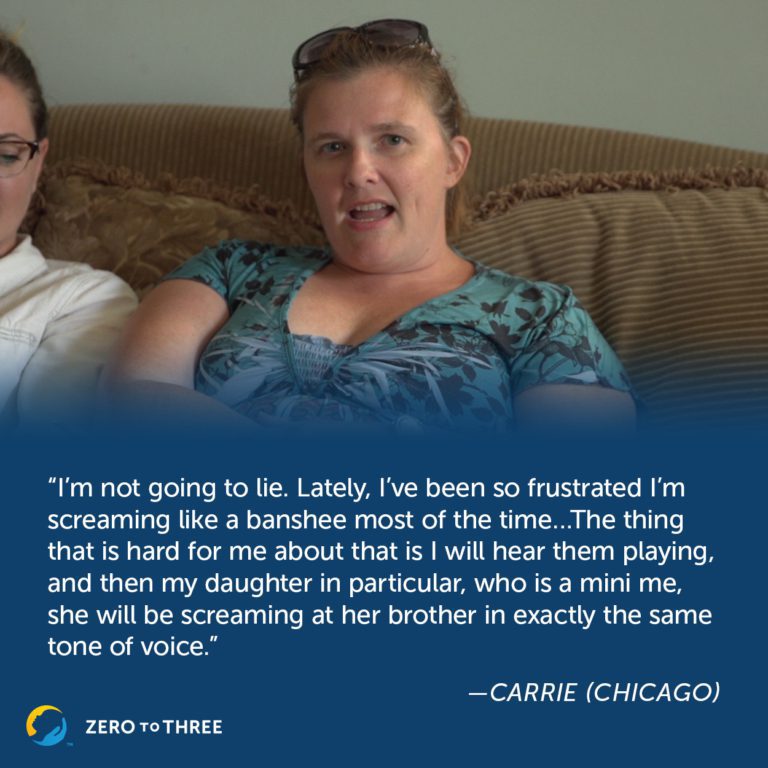
Finding Your Approach
Be sure your expectations for your child match his/her age and stage of development.
Recognize that young children are driven by emotions, not logic, so irrational behavior is totally normal. Expecting more from children than they are capable of can lead to lots of frustration for both parents and children. Our research revealed that a majority of parents believe children start developing self-control much earlier than brain science tells us is possible. In fact, these skills start developing between 3.5 and 4 years, and take many more years to be used consistently.
Have appropriate expectations because the meaning you assign to a child’s behavior influences how you react.
If you think your child is purposefully breaking rules, you are much more likely to react in harsh ways that escalate, instead of calm, your child. If you see these behaviors in the context of normal development, you are more likely to approach your child with empathy and appreciate these moments as opportunities to teach good coping skills.
Feelings are not the problem, it’s what kids (and adults!) do with them that can be problematic.
Recognizing and naming feelings is the first step toward learning to manage them in healthy, acceptable ways over time. Validating children’s feelings also reduces the child’s need to act-out on those feelings.
Manage your own emotions.
It is important to tune in to and manage your feelings, because how you react in these challenging moments with young children deeply affects their ability for self-regulation, self-control, and overall emotional health far into the future. Research (and real-life) shows that when parents react harshly (emotionally or physically), children’s distress tends to escalate. Children can’t learn when they are upset or scared.
Look at the world from your child’s perspective.
Learning to manage emotions and deal with life’s frustrations and disappointments is hard work for little ones who have just been on this earth for two or three years. Toddlers have strong feelings but few tools for managing them. The part of the brain responsible for managing behavior and impulses is still very immature. Young children need help to cope with life’s rules and limits. They need support and guidance to learn about controlling their emotions and adapting to the many rules of everyday family life.
All behavior has meaning.
Throwing a tantrum in the grocery store might be due to sensory overload, fatigue, or disappointment about not getting a cookie from the bakery. Biting might be due to a need for stimulation or to keep others from invading her space. Trying to understand the root cause of a behavior can help you come up with discipline strategies that are sensitive and effective. This means considering some factors that impact behavior: What’s going on in your child’s world—has she experienced a recent move? A loss? The arrival of a new baby? Parental stress? It’s also important to think about your child’s temperament. Is she a big reactor or a go-with-the-flow kind of kid? Is he persistent or does he gets frustrated easily? How does she react to new people and experiences—does she jump right in or need time to feel comfortable? All of these factors influence children’s ability to cope with life’s natural stressors such as: adapting to a new experience, not getting everything they want—when they want it, having to share or to sleep in their own room, or stopping an activity they love to do something they don’t love (like having to leave the playground to go home for a nap.)
See your child as a partner in solving problems.
Starting at around 2.5 to 3 years of age, children begin to understand logic—why things happen. This means they can start to participate in problem-solving. “Throwing balls at people is not okay—It hurts. What are other ways you can use the ball?” “Two boys, one truck, what should we do?” The more children feel they are a part of the solution, the more likely they are to cooperate with it. Life is a series of problems to solve every day, so nurturing this skill in young children is one of the greatest gift you can give them.
Avoid harsh punishment.
There is increasing and overwhelming evidence that harsh emotional and physical discipline methods (i.e., verbal shaming, spanking) are harmful to children’s social-emotional and cognitive development. While it may appear to work in the moment—stopping a behavior out of fear—it is not effective in teaching self-control in the long term.


